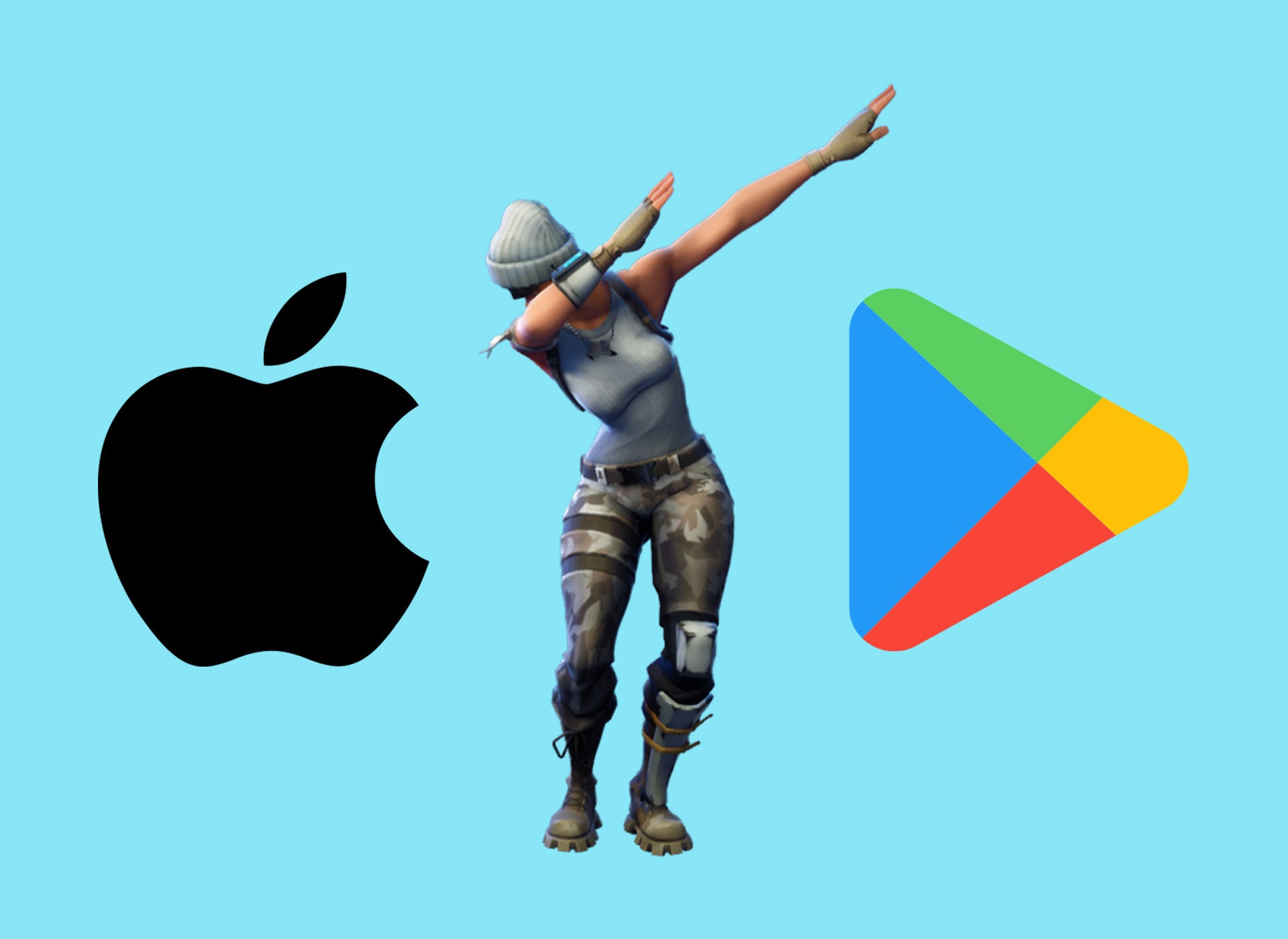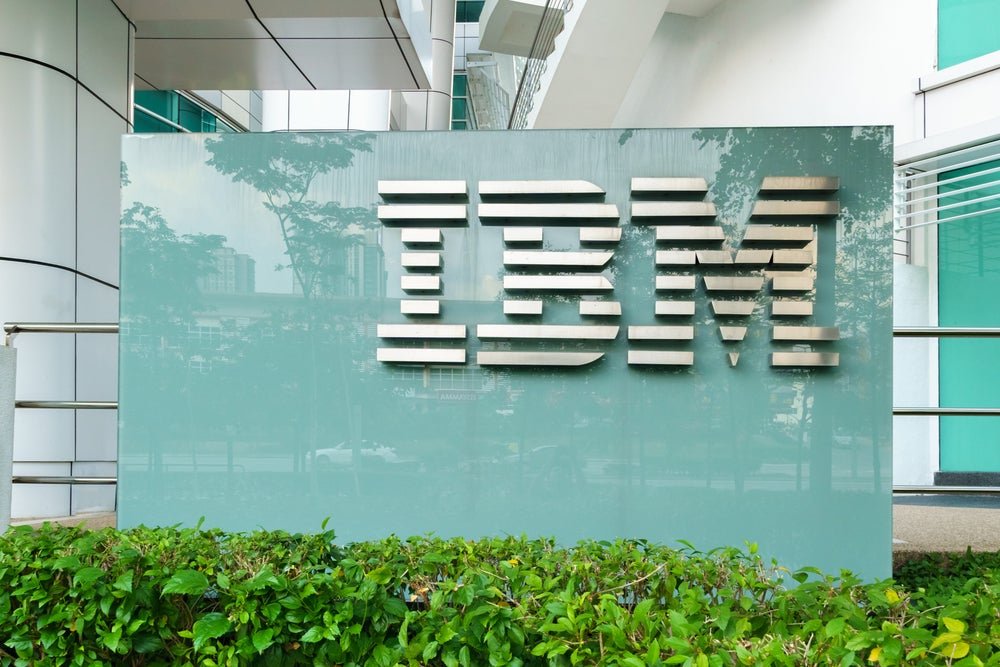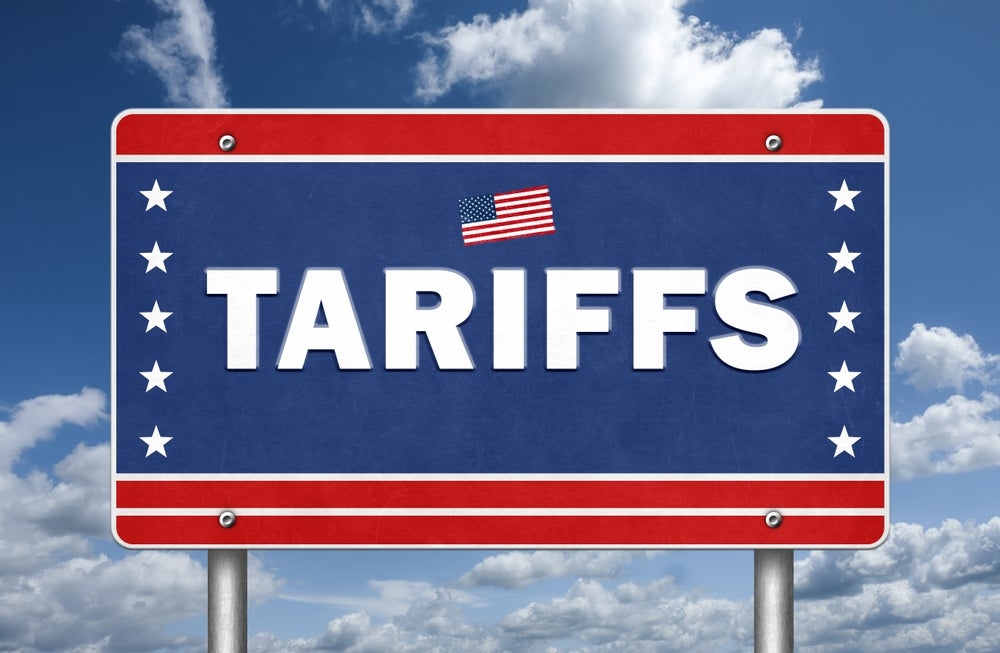
A battle is brewing between two tech titans and a gaming juggernaut. Apple and Google have removed Fortnite from their respective app stores after its maker, Epic Games, bypassed their payment systems to avoid paying a 30% commission.
Minutes after Apple pulled Fortnite from its App Store on Thursday, Epic Games filed a lawsuit over alleged antitrust violations. It then did the same for Google.
“Apple has become what it once railed against: the behemoth seeking to control markets, block competition, and stifle innovation,” said Epic Games in its legal filing. “Apple is bigger, more powerful, more entrenched, and more pernicious than the monopolists of yesteryear. At a market cap of nearly $2tn, Apple’s size and reach far exceeds that of any technology monopolist in history.”
Apple has dismissed these allegations, pointing to the benefits that Fortnite gains from being part of an ecosystem used by a billion people. The quick turn of events suggests Epic Games had been plotting its stand against Apple and Google. But who has the most to lose, and what can be gained from the standoff?
Who stands to lose most in the Epic standoff?
When Epic Games launched Fortnite in 2018 the battle royale game – which sees 100 players fight for survival as a storm shrinks the map – it dominated the cultural zeitgeist. The game is free to download, which drew in hundreds of millions of players, but they can purchase in-game currency known as V-Bucks to spend on character cosmetics and celebration moves.
As its popularity soared, so did its revenues. In its first year, it scooped $2.4bn, according to research firm SuperData. But how much of that came via the App Store?
Epic Games does not provide a full breakdown of Fortnite revenues. But according to research firm Sensor Tower, the game generated $500m on Apple devices in its first year, netting Apple around $150m. While that’s big money, it represents a mere 0.06% of Apple’s overall $265bn revenue for that year. Losing that income isn’t even a scratch for Apple. It’s certainly not a flesh wound.
By contrast, 21% of Fortnite’s revenue in 2018 was made via the App Store – or 9% of Epic Games’ total revenues.
For Google, the scale is smaller. Fortnite wasn’t available on the Play Store until April this year. So far, it has brought in an estimated $10m in sales, netting Google about $3m. Once again, this isn’t even a drop in the ocean of Google’s overall revenues. But while Google’s Play Store also takes a cut from purchases, developers are free to point users to other payment options, such as a website, where Google doesn’t take a cut.
There are also signs that Fortnite’s popularity is waning. In 2019 it brought in a reported $1.8bn. Revenue has been declining ever since, as more battle royale style games, from Apex Legends to Call of Duty’s Warzone, have competed for players’ attention – and wallets.
In the meantime, Apple’s revenues have soared, making it the largest company in the world by market cap.
Financially, Epic Games is hopelessly outgunned. But in the public relations war, Fortnite is currently winning.
Apple’s public relations storm
On Thursday, Fortnite launched an in-game parody video of Apple’s famous 1984 commercial. In the original, Apple took aim at IBM, comparing the company to George Orwell’s fictional Big Brother.
“Epic Games has defied the App Store monopolgy. In retaliation, Apple is block Fortnite from a billion devices. Join the fight to stop 2020 from becoming ‘1984’,” the video said.
Epic Games has defied the App Store Monopoly. In retaliation, Apple is blocking Fortnite from a billion devices.
Visit https://t.co/K3S07w5uEk and join the fight to stop 2020 from becoming "1984" https://t.co/tpsiCW4gqK
— Fortnite (@FortniteGame) August 13, 2020
Epic has taken a similar approach to Google, focusing on the company’s now-infamous “Don’t be evil” mantra.
“Twenty-two years later, Google has relegated its motto to nearly an afterthought,” the complaint alleges, “and is using its size to do evil upon competitors, innovators, customers, and users in a slew of markets it has grown to monopolise.”
Robin Campbell-Burt, deputy MD at public relations firm éclat Marketing, told Verdict that Fortnite is building a narrative that could put it in good light among consumers.
“Fortnite are simply watering a seed that is already planted in the minds of the public when they think about Apple –that Big Tech are abusing their power to take advantage of other creatives. This is a great way for them to position their brand as less corporate, and more in tune with the current generation,” he said.
“The danger for Apple is that the idea that they are just another big conglomerate abusing its power develops strong roots in the public’s minds. When you think about the significance that the Apple brand has to the stock value of the company, its long-term reputation should be one of its most important considerations.”
It comes as Apple faces scrutiny over its App Store on both sides of the Atlantic. In June the European Commission launched an antitrust investigation into Apple’s App Store practices. Critics say the 30% commission is unfair and not applied consistently.
For example, music streaming app Spotify – which filed a complaint against Apple in 2019 – must pay Apple 30% of all subscription revenues generated by the App Store. However, Apple does not take a similar cut of video streaming apps, such as Netflix.
Apple argues that it provides a much larger marketplace to companies that they would not otherwise reach.
Fortnite’s fan power
Fortnite has called upon its loyal fanbase to take the fight to Apple and Google using #FreeFortnite. Epic is also hoping to win over supporters by passing the savings directly on to consumers, which in turn strengthens Epic’s argument that Apple and Google’s commission harms consumers by raising prices.
While a shrewd move in the PR war, it is not without risk. As things stand, iPhone owners will not be able to play Fortnite from 27 August when the latest update arrives. Google has less control over apps than Apple, with users still able to download the game directly from Epic Games.
In a blog post, Epic Games pulled no punches and made it clear who it thinks users should blame.
“Because Apple has BLOCKED your ability to update, when Fortnite Chapter 2 – Season 4 releases you will NOT be able to play the new Season on iOS,” Epic said.
But without any resolution, Epic Games risks a backlash from its own fans should they grow tired of corporate litigation that means they cannot play the video game they want to play.
Both Apple and Google have said they want to work with Epic Games to resolve the situation. And Apple has given ground on its App Store policies in the face of bad publicity before. But Fortnite appears to be holding out for widespread change to the app store levy, carrying the torch for the many aggrieved developers. The storm is closing in, and both sides are holding out for victory royale.
Read more: Apple lets developers appeal App Store violations following criticism







